We may not have the course you’re looking for. If you enquire or give us a call on +27 800 780004 and speak to our training experts, we may still be able to help with your training requirements.
Training Outcomes Within Your Budget!
We ensure quality, budget-alignment, and timely delivery by our expert instructors.

Embarking on a journey through the many Website Design Tools requires a great understanding of the pivotal elements shaping online experiences. In this blog, you will explore the powerful instruments that wield the capability to transform creative visions into compelling web realities.
Whether you're a seasoned designer seeking innovation or a novice navigating the vast world of web creation, the right set of Website Design Tools is your gateway to crafting visually stunning and functionally robust online presences. Reading this blog on Website Design Tools will help you be more effective, protecting everything from complete design software to smaller tools to facilitate specific tasks.
Table of Contents
1) 20 Best Website Design Tools
a) Figma
b) WordPress
c) Wix
d) Adobe XD
e) CMS Hub
f) Sketch
g) Bootstrap
h) Lunacy
i) Visual Studio Code
j) Origami
2) Conclusion
20 Best Website Design Tools
Discover the pinnacle of Web Design with the best tools on the market. From Adobe XD's seamless prototyping to Canva's user-friendly interface, these tools cater to diverse skill levels. Whether crafting visually stunning WordPress sites or leveraging collaborative platforms like Figma, these tools empower designers to transform creative visions into captivating online experiences. Have a look:
1) Figma
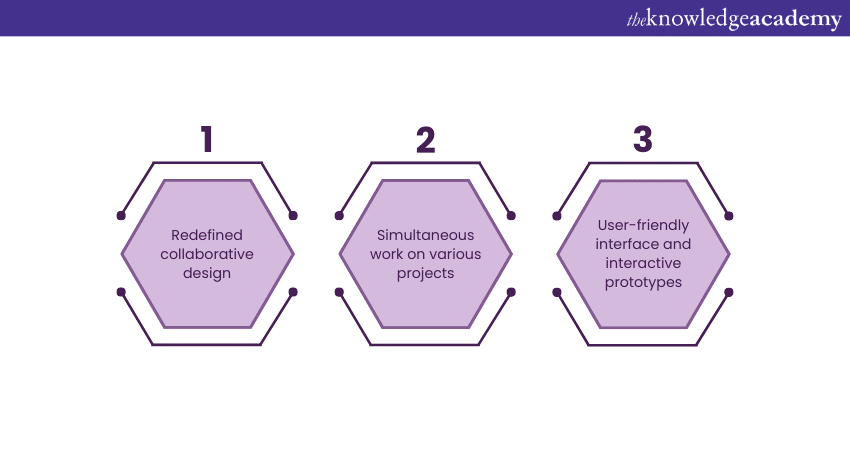
Figma stands as a revolutionary cloud-based design tool that redefines collaborative design experiences. With its real-time collaboration features, designers can work simultaneously on projects, fostering seamless teamwork. Offering a user-friendly interface, Figma empowers users to create interactive prototypes, ensuring a dynamic design process.
Its versatility extends to design systems and component libraries, promoting consistency across projects. Figma's cloud-based nature allows for effortless sharing and feedback, streamlining communication among team members. Whether you're a solo designer or part of a larger team, Figma's innovative approach makes it an indispensable tool for bringing design concepts to life with efficiency and precision.
2) WordPress
WordPress, a powerhouse in Web Development, provides an unparalleled platform for creating versatile and visually stunning websites. As an open-source Content Management System (CMS), WordPress offers a user-friendly interface, allowing both beginners and experienced developers to craft customised sites with ease.
With an extensive library of themes and plugins, it provides flexibility and scalability for diverse needs. Its robust blogging capabilities and SEO-friendly structure make it a favourite for content creators. WordPress stands as a testament to democratising website development, enabling individuals and businesses to establish a compelling online presence effortlessly and efficiently.
3) Wix
Wix, a leading website builder, empowers users with a streamlined, drag-and-drop interface for creating visually striking websites without the need for coding expertise. With a vast library of templates catering to diverse industries, Wix offers flexibility and customisation.
Its intuitive design features, coupled with robust SEO tools, make it a favourite among entrepreneurs and small businesses. Wix ADI (Artificial Design Intelligence) further simplifies the process, generating personalised site designs based on user preferences. As a comprehensive solution, Wix facilitates everything from domain registration to hosting, ensuring a user-friendly and all-encompassing web design experience.
4) Adobe XD
Adobe XD stands as an industry-leading design and prototyping tool, revolutionising the digital design landscape. With an intuitive interface, it seamlessly integrates with other Adobe Creative Cloud applications, facilitating a fluid design workflow.
Offering advanced features like prototyping, responsive resizing, and collaborative design, Adobe XD caters to both individual designers and collaborative teams. Its interactive design capabilities allow for the creation of dynamic and engaging user experiences, while its efficient layout tools streamline the design process. As a versatile solution for UI/UX designers, Adobe XD empowers creative professionals to bring their design visions to life with precision and innovation.
5) CMS Hub
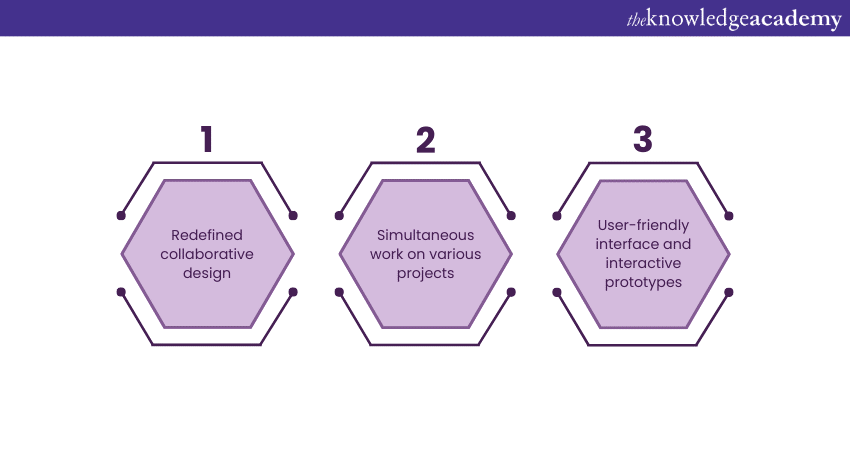
CMS Hub by HubSpot is a powerful content management system designed to elevate web experiences. It combines website creation, management, and optimisation tools in a seamless platform. With intuitive drag-and-drop editors and adaptive content features, CMS Hub simplifies website design and ensures responsiveness across devices.
Furthermore, its robust analytics and personalised content capabilities enhance user engagement. Moreover, CMS Hub integrates seamlessly with HubSpot's CRM, offering a comprehensive solution for marketers and developers.
This dynamic CMS enables businesses to create and manage content effortlessly, driving impactful marketing strategies and fostering a user-centric approach to web development.
6) Sketch
Sketch is a dynamic vector graphics editor that has become a staple for modern digital design. Recognised for its precision and versatility, Sketch simplifies UI/UX design processes. With a focus on creating high-fidelity interfaces, it offers an extensive library of plugins and a collaborative platform for seamless teamwork.
This macOS-exclusive software excels in responsive design, enabling designers to craft pixel-perfect layouts. Sketch's intuitive artboard system and vector editing tools make it a favourite among designers for creating visually stunning, scalable, and interactive designs. Its commitment to simplicity and efficiency makes Sketch an indispensable tool in the toolkit of digital creatives.
7) Bootstrap
Bootstrap, a front-end framework, is a game-changer in Web Development, offering a robust toolkit for building responsive and mobile-first websites. Developed by Twitter, Bootstrap streamlines the design process with its pre-designed components, grid system, and CSS styles.
It ensures a consistent and polished look across various devices, saving developers time and effort. With an open-source nature, Bootstrap facilitates rapid prototyping and customisations. Its popularity stems from its adaptability, making it a go-to choice for designers and developers seeking efficiency and a sleek, modern aesthetic in their web projects. Bootstrap stands as a cornerstone in the evolution of responsive web design.
8) Lunacy
Lunacy, by Icons8, is a feature-rich graphic design software tailored for Windows users, providing a versatile platform for creating compelling visuals. As a robust alternative to Adobe XD, Lunacy supports vector editing, making it ideal for UI/UX design. Its user-friendly interface and collaboration features enhance the design process, while its integration with the Icons8 library offers a vast array of design assets.
Lunacy's ability to open, edit, and save Sketch files without a Mac environment broadens its accessibility. This free and efficient tool caters to both individual designers and collaborative teams, ensuring a seamless and productive graphic design experience.
9) Visual Studio Code
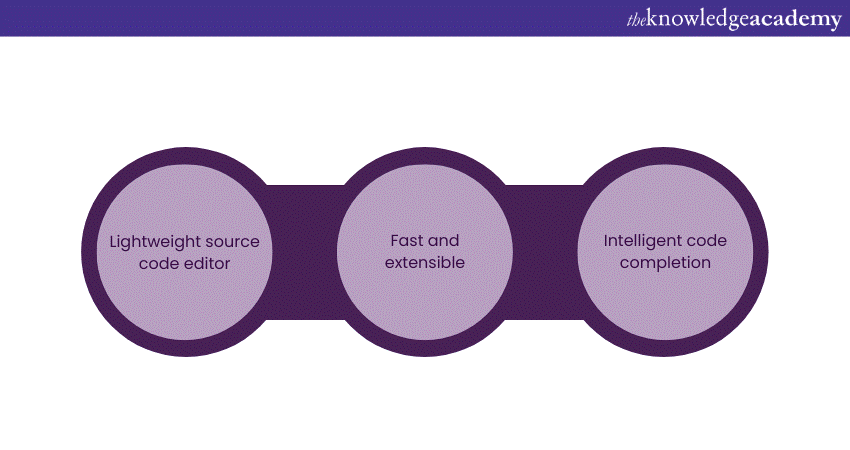
Visual Studio Code (VS Code) is a lightweight yet powerful source code editor by Microsoft, designed for developers across various platforms. Praised for its speed and extensibility, VS Code supports an array of programming languages and features a rich ecosystem of extensions.
Its built-in Git integration, intelligent code completion, and debugging capabilities streamline the development process. With a customisable interface and a focus on productivity, VS Code is a favourite among developers for its versatility and community-driven development. Free and open-source, it exemplifies an efficient and developer-friendly environment, contributing to its widespread adoption in the coding community.
10) Origami
Origami is not only the ancient Japanese art of paper folding but also a dynamic design prototyping tool created by Facebook. Tailored for UI/UX designers, Origami streamlines the interactive design process by enabling the creation of complex, interactive prototypes without extensive coding.
Its visual interface, coupled with animation and gesture features, empowers designers to simulate user experiences effectively. As a plugin for Quartz Composer, Origami seamlessly integrates into existing workflows, making it a valuable asset for those seeking a comprehensive solution for prototyping and testing app and website designs with a focus on user interaction.
11) GIMP
GIMP, or GNU Image Manipulation Program, stands as a robust open-source raster graphics editor. Catering to a wide spectrum of design needs, GIMP provides a comprehensive set of tools for tasks like photo retouching, image editing, and graphic design.
Its versatility includes support for various file formats and a customisable interface. As a cost-effective alternative to proprietary software, GIMP is embraced by designers and artists worldwide.
Moreover, with features like layers, filters, and advanced image manipulation capabilities, GIMP empowers users to create professional-grade visuals. Its active community and continuous development underscore its position as a formidable free and open-source graphics tool.
12) Marvel
Marvel is a user-friendly design and prototyping platform that empowers creators to bring their ideas to life. Geared towards designers, product managers, and developers, Marvel streamlines the design process with its intuitive interface.
It allows seamless collaboration, enabling teams to create interactive prototypes and iterate on designs efficiently. With features like user testing, design handoff, and integrations with popular design tools, Marvel caters to the entire product development lifecycle.
This platform stands out for its simplicity, making it accessible for both beginners and experienced designers, and its commitment to facilitating a smooth transition from design to development.
13) Google Web Designer
Google Web Designer is a free, professional-grade design tool facilitating the creation of interactive HTML5 content. Tailored for both beginners and experienced designers, it offers a user-friendly interface and a range of design components.
More importantly, Google Web Designer seamlessly integrates with other Google products, enhancing workflow efficiency. Its robust animation features and 3D authoring capabilities make it a versatile tool for crafting engaging and responsive web content.
With support for dynamic content and mobile optimisation, Google Web Designer empowers designers to bring creativity to the forefront, ensuring a seamless design experience and compatibility across various devices.
14) Nova
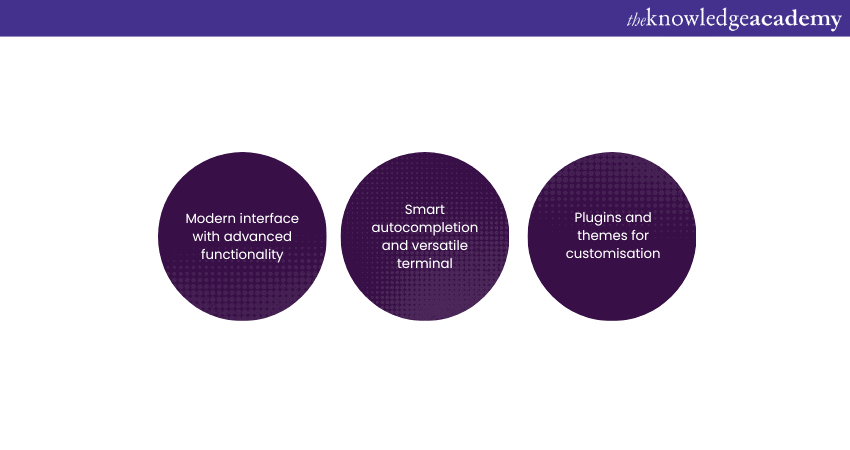
Nova is a sophisticated code editor designed for macOS, offering a powerful yet elegant environment for developers. Developed by Panic, Nova combines a modern interface with advanced functionality, providing a seamless coding experience.
Additionally, with features like smart autocompletion, a versatile built-in terminal, and Git integration, Nova enhances productivity. Its extensibility through plugins and themes allows developers to tailor the editor to their preferences.
Moreover, Nova's native performance and attention to detail make it a preferred choice for web and software development, embodying a perfect blend of functionality and aesthetics in a coding environment.
15) Adobe Dreamweaver
Adobe Dreamweaver is a premier web development application renowned for its robust features and user-friendly interface. As part of the Adobe Creative Cloud suite, Dreamweaver offers a powerful code editor with syntax highlighting, making it suitable for both novice and advanced developers.
Additionally, its visual design tools enable the creation of responsive websites without extensive coding. Dreamweaver's Live View feature provides a real-time preview of web pages, streamlining the design process.
Moreover, with built-in FTP capabilities, collaborative features, and support for various languages, Adobe Dreamweaver stands as an industry-standard tool, empowering developers to build and maintain cutting-edge websites efficiently.
16) Webflow
Webflow stands as an all-in-one web design platform, revolutionising the way websites are created without code. Tailored for designers and businesses, Webflow combines a powerful visual editor with robust CMS capabilities.
Its intuitive drag-and-drop interface allows for the seamless creation of responsive and interactive websites. Webflow's hosting services, custom domains, and e-commerce features provide a comprehensive solution for web projects.
With a focus on design freedom and collaboration, Webflow bridges the gap between design and development, empowering users to build visually stunning and fully functional websites without the need for traditional coding expertise.
17) Designmodo
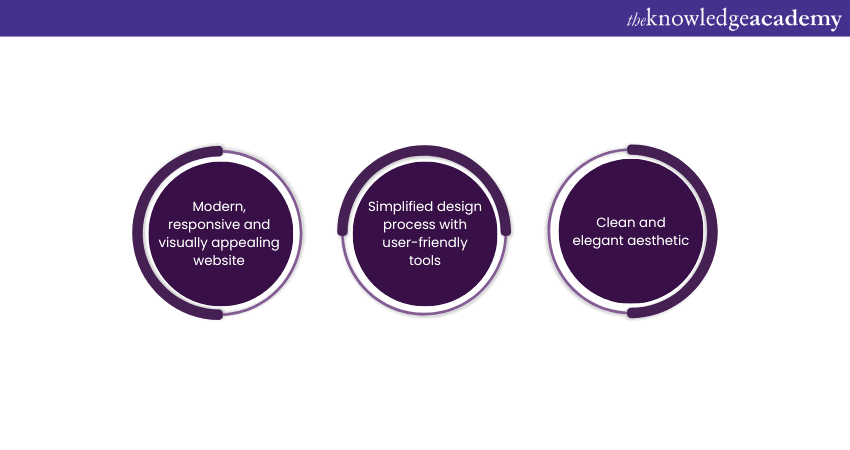
Designmodo is a cutting-edge design and development platform that empowers professionals to create modern, responsive, and visually appealing websites. Known for its innovative products, such as the Startup Framework and Postcards, Designmodo simplifies the design process with user-friendly tools and frameworks.
Its emphasis on clean, elegant aesthetics and functional design elements makes it a go-to resource for designers and developers. With a commitment to staying at the forefront of industry trends, Designmodo's solutions cater to a broad spectrum of creative needs, enabling users to craft compelling and user-centric digital experiences.
18) Trello
Trello is a versatile project management tool that revolutionises collaboration and organisation. Using a card-based system, Trello allows teams to create boards for projects, each containing customisable lists and cards that represent tasks. Its intuitive drag-and-drop interface and collaboration features make project tracking simple and efficient.
With added functionalities like due dates, attachments, and comments, Trello enhances communication and coordination within teams. Whether used for professional projects or personal to-do lists, Trello's flexibility and accessibility on various devices make it an invaluable tool for individuals and teams seeking a visual and organised approach to task management.
19) Squarespace
Squarespace is a comprehensive website building and hosting platform that empowers individuals and businesses to create visually stunning online presences. With an emphasis on design simplicity and user-friendly tools, Squarespace offers a range of customisable templates for websites, portfolios, and online stores.
Its drag-and-drop interface and integrated features simplify the web design process, while robust e-commerce capabilities make it ideal for entrepreneurs. Squarespace also provides domain registration and reliable hosting, ensuring a seamless end-to-end experience. Recognised for its elegant designs and all-in-one approach, Squarespace stands as a go-to solution for those seeking a polished and hassle-free web development experience.
20) Shopify
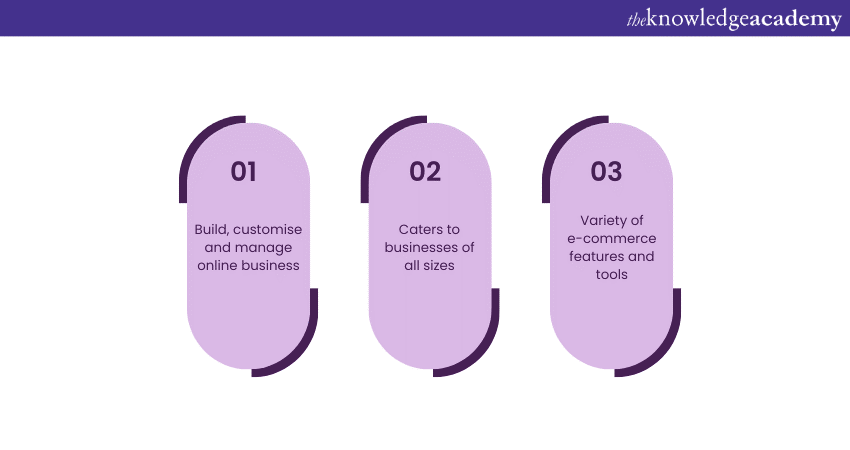
Shopify is a leading e-commerce platform that empowers businesses to build, customise, and manage their online stores effortlessly. Renowned for its user-friendly interface and scalability, Shopify caters to businesses of all sizes.
It offers a variety of customisable templates, a secure and reliable payment system, and comprehensive e-commerce features, including inventory management and marketing tools. With a focus on simplifying the online selling experience, Shopify ensures that entrepreneurs can create a professional and seamless shopping environment for their customers.
Its robust ecosystem and support make it a preferred choice for individuals and businesses entering the world of online retail.
Create captivating and functional web designs by signing up for our Website Design Course now!
Conclusion
Digital creativity makes the right Website Design Tools, indispensable. From Adobe XD's precision to Wix's simplicity, these tools empower designers and businesses alike. In conclusion, the diverse array of tools discussed demonstrates the dynamic nature of Website Design, enabling the realisation of captivating online experiences.
Frequently Asked Questions
Upcoming Programming & DevOps Resources Batches & Dates
Date
 Website Design Course
Website Design Course
Thu 30th Jan 2025
Thu 27th Mar 2025
Thu 29th May 2025
Thu 24th Jul 2025
Thu 25th Sep 2025
Thu 27th Nov 2025







 Top Rated Course
Top Rated Course



 If you wish to make any changes to your course, please
If you wish to make any changes to your course, please


